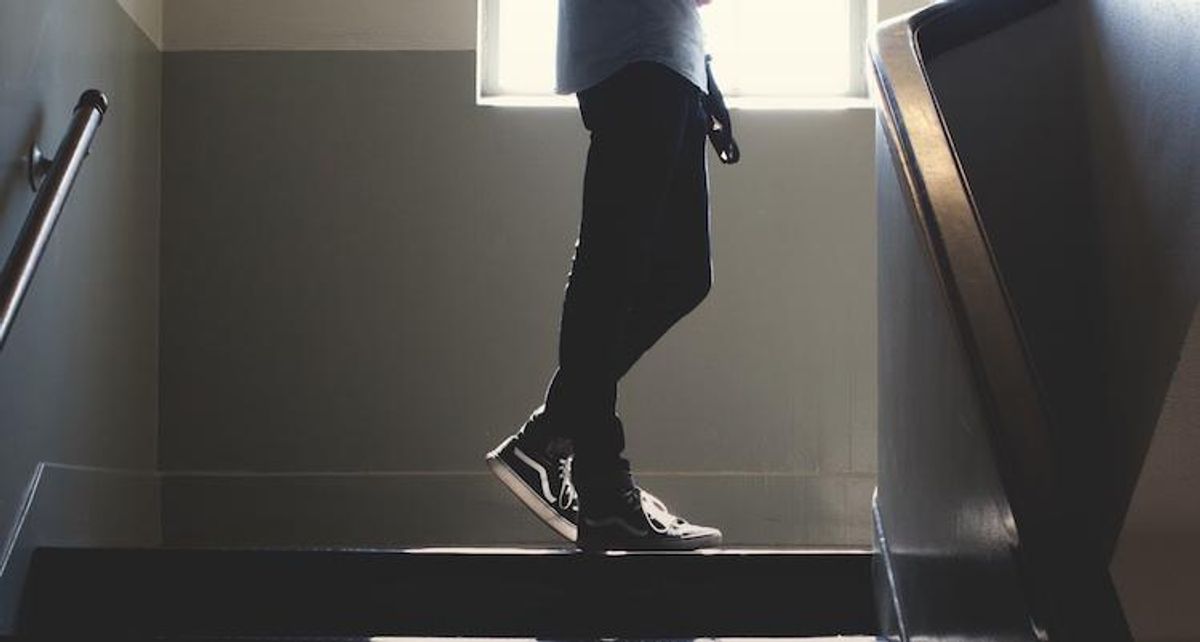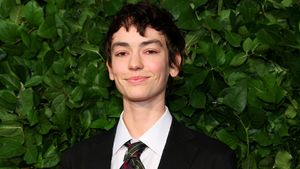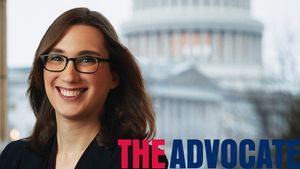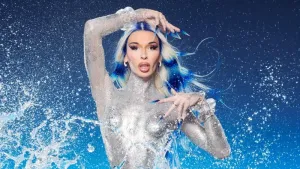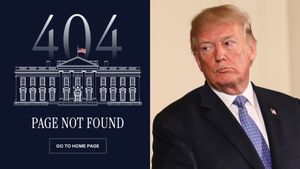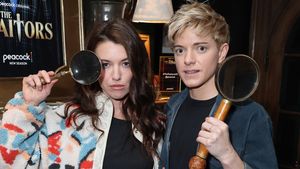This essay was chosen by editors in reponse to the #FirstTime prompt: Who was your first love?
Andrew Lee was the first boy I ever loved.
He had a winter birthday, some chilly month like November or December. I remember because we had turkey-shaped cupcakes for his party and because Alabama in winter is bright blue like the eye of a beautiful boy.
Andrew was my best friend. We sat elbow-to-elbow at the coloring table. He was left-handed. He had a long face and a severe, black bowl-cut. His eyes were dark and huge. He had thin arms and legs, bird-light but strong. He was gifted at drawing, at which my own efforts were less inspired. I only enjoyed it because we sat next to each other.
At P.E. we ran hard and fast and played Power Rangers. I did not tell him that in my imagination I was Kimberly, agile and flexible, and he was either cocky Tommy or noble Jason. To initiate the game, we would put our hands on our hips and shout It's Morphin' Time! and spin around twice, making whooshing noises and throwing our hands in the air. Once we had transformed, we'd spring forward and throw fists and spinning kicks. At any given moment, one of us would fling his body across the ground and pretend to be grievously injured, crying out, Andrew, come help! or Brandon, I'm losing power! The uninjured one would run to stand between his fallen comrade and the oncoming danger.
I loved him, even before I knew what love was. I loved him. I dreamed of him. His was the first face I imagined when I woke. His was the last face I thought of before I went to sleep. When I was at home, playing alone in our yard that verged on a deep gully, I imagined him by my side battling through the invisible armies of my imagination. I developed a deep fascination with the crooked dimple in his cheek and with his enormous teeth, bucked and slanted. I loved his bright laugh, his raspy voice, and the timbre of his sulkiness.
Andrew came from California, and so he spoke what sounded to me like unaccented and clear English. But people of the South alternately stretch their words until they are unrecognizable, or they spit sentences out like bullets of compressed sound. Andrew was different--like me. I was born sonically out of sync with the rest of my family. Not only did I not have a drawl, but I spoke with a long, flat cadence like my distant Yankee cousins in Ohio. For Andrew and me, the was thee and not thuh, Power Rangers not Powuh Ranguhs, quit not qweet. While my family was incomprehensible--a sea of strange sounds--Andrew was the first person with whom I could speak a native language.
Andrew did not care that I was black or that he was Chinese. We were living in that magical time before race and before class, before the things that make life difficult and ugly. Between the two of us existed a space where nothing bad could invade. The other kids tease us. They pinched the corners of their eyes and dragged them up or down at Andrew. They whispered nigger nigger behind my back. If my relationship with Andrew was the first time I ever felt truly loved by another person, then it was these faceless, smirking children who taught me what it felt like to be hated.
We were ridiculed so much that I was forced to learn the salvation of silence, a skill Andrew possessed in spades. During indoor playtime, Andrew could sit and draw in quiet. He withdrew into himself and remained perfectly, never bubbling over with energy or excitement. I did not have such discipline. I wanted to build blocks. I wanted to play house. I wanted to laugh. But these were activities that involved talking or moving, activities that invited the eyes and ears of the other boys. Andrew was resolute in his distance--introverted, intelligent, painfully mature for his youth. But once the bell rang and we left together for outside, he shed his armor and breathed in a lightness only he could inhale, returning--in that moment--from some isolated prison to an island all his own.
We were safe here. We were free to let our voices out into the world.
Like what you read? Submit your own #FirstTime essay in response to our next prompt: What was it like coming out? Instructions here.
